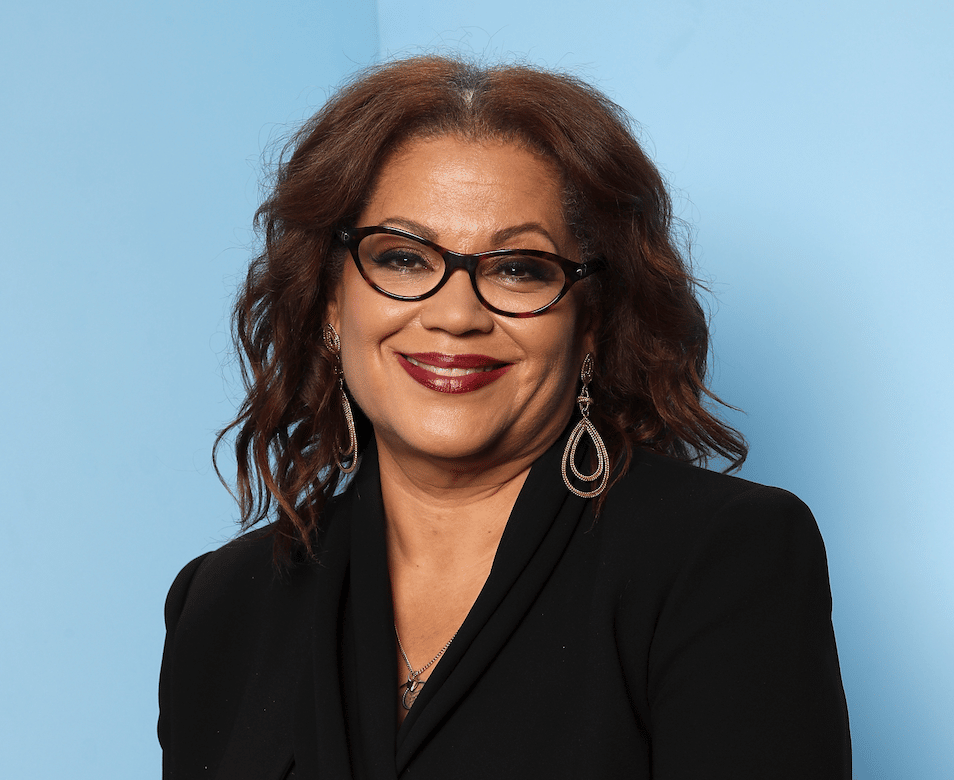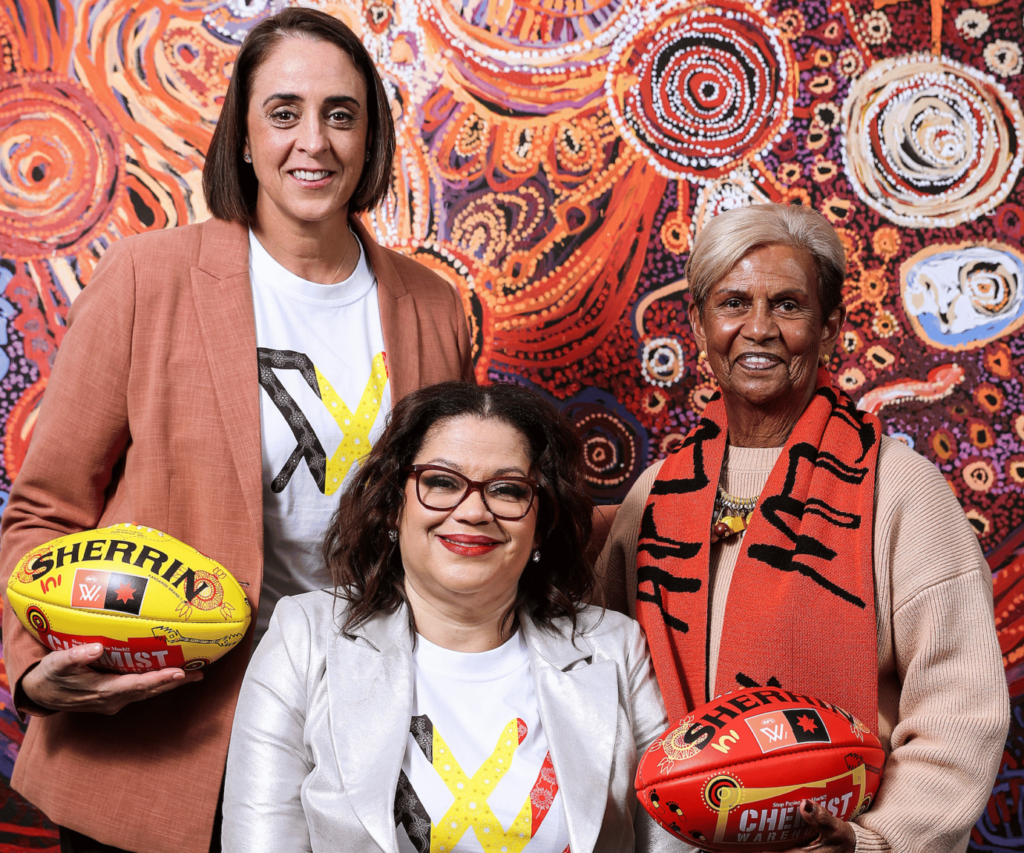Celebrating a journey –past, present and emerging– builds the story of this year’s AFLW Indigenous Round and encourages collective reflection of the remarkable contribution that Aboriginal and Torres Strait Islander women and girls have made to the game and the wider community over several decades.
Last week, as Indigenous Round commenced, Proud Yorta Yorta Elder Aunty Pam Pedersen was named 2022’s Indigenous Round Honouree for her tireless advocacy of Aboriginal people’s rights as well as her trailblazing athleticism—having represented Victoria at the World Masters Games in swimming as well as competing in half marathons, triathlons, open water swimming and yachting. In 2005, Aunty Pam was named NAIDOC National Sportsperson of the year.
Describing the honour as a “special” moment, Aunty Pam said it caused her to reflect on the profound progress that’s been made in women’s sport.
“It’s very special for me to be the honouree elder, because of the way I feel about all our Aboriginal girls playing and it also makes me think of the past, the elders, the nannas, and the grandfathers. If they were here today, to see their girls running out on the field,” she shares.
As the youngest daughter of Aboriginal leaders Pastor Sir Douglas Nicholls and Lady Gladys Nicholls, Aunty Pam also thinks deeply about the pride they would feel to see what’s occurring now with the AFLW and opportunities afforded to Aboriginal girls.
“Mum and dad were amazing people. They both fought through the struggle of our Aboriginal people and if they were here today to see the AFLW, they never thought something like this would be possible. If they were both alive today, they would feel so proud. Dad would just love it,” she says.
As well as huge strides toward First Nations inclusion in the game, Aunty Pam notes important progress with more Aboriginal women elevated to positions of leadership across industries.
Indeed, AFL’s Executive General Manager of Inclusion and Social Policy is one such trailblazer. Tanya Hosch joined the AFL as the first ever Indigenous person and second woman in the League’s Executive ranks in August 2016–something which she says has given her a platform she never anticipated.
“It’s given me the opportunity to speak to all different parts of the football sector, and certainly within the AFL, I can tell that it’s making a difference. Because the conversations we have now are really different to the ones we had when I first started,” she says.

Hosch notes an encouraging development in which more clubs are seeking Indigenous talent at the top.
“When I look at the number of Indigenous women that are now on AFL club boards, that’s really encouraging. So many of the clubs are looking to have more women on their boards and I’m able to say, ‘well, let me introduce you to some wonderful Aboriginal and Torres Strait Islander women who’ve got a serious contribution to make’”.
It’s another reason why Indigenous Round is so important. It enables all Australians to recognise the profound influence that First Nations women and girls have had and continue to have and acknowledge the depths of talent that exist across the board.
“What this theme is doing is acknowledging all the Indigenous women who’ve come before us, whether that be in footy, civil society, politics, academia and other parts of the workforce,” says Hosch. “All of those women who’ve come before us and laid down the groundwork for ensuring that women’s voices are heard – both emerging and established leaders.”
Jacara Egan, the first Aboriginal woman to coach in the NAB League and an AFLW development coach agrees.
She notes the cycle-breaking contribution that her father bestowed on his family; enabling his daughter to play football, gain an education and even attend university. She also credits the long line of resilient matriarchs that came before him who shaped his resolve.
“My aunties, my nan, even some other strong women in our community… when things get hard for me, being a mixed-race woman existing in this world, I think about the foundations that they’ve laid, and the support they’ve given me,” says Egan.

“They are exactly the reasons why I’m here and I’m doing what I’m doing and I’m able to have a cool job, work in football and coach football. I don’t do that without them.”
Egan also acknowledges the influence that present leaders like Hosch, have on emerging First Nations female leaders.
“The presence of women like Tanya and also other really strong allies, like non-Aboriginal women who champion those diverse perspectives, has been critical. They’re all contributing to a much-needed shift,” she believes. “It’s so important to have mentors in the same space that have the lived experience of what you’re going through.”
As for what she hopes all Australians will take away from this year’s Indigenous Round? A willingness to learn about, enjoy and embrace Indigenous culture and the women at its helm.
“The round is to celebrate our culture, it’s in our blood,” says Egan.
“We have contributed and continue to contribute so much to the game. I’d really love for people to enjoy it, show up in a way that is open to learning and embracing our culture, and the excellence we have to bring to football and the wider community.”


